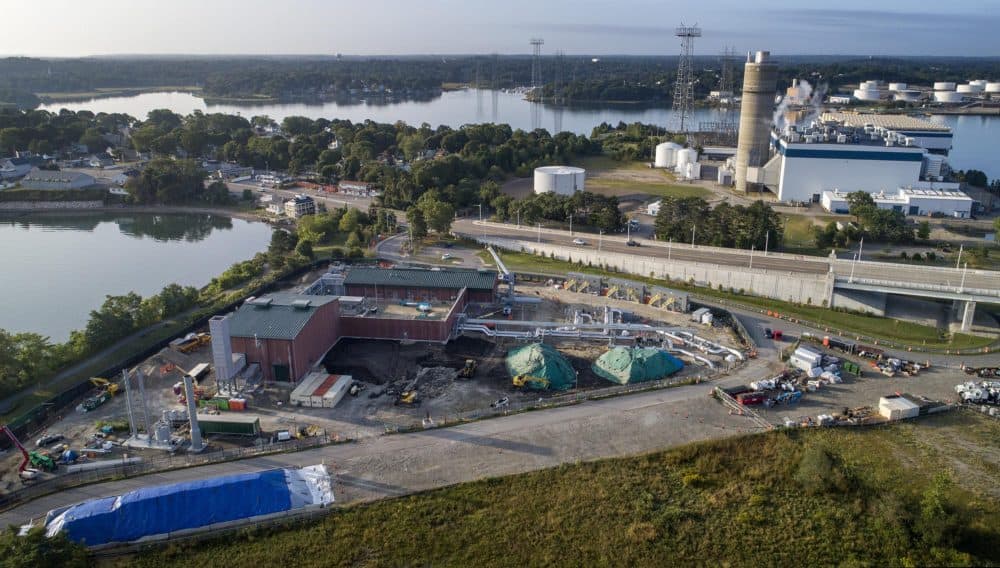Advertisement
Feds Give Weymouth Natural Gas Compressor Station Final Green Light To Begin Operations

The controversial Weymouth Natural Gas Compressor Station overcame its final regulatory hurdle Thursday when the Federal Energy Regulatory Commission (FERC) gave the company behind the facility, Enbridge, permission to put the station "into service."
"This authorization is granted on the basis of [Enbridge's] construction status reports and photographic documentation," Rich McGuire, FERC's Division of Gas director, wrote in a letter. He went on to say that the company appears to have "adequately stabilized areas disturbed by construction and that restoration is proceeding satisfactorily."
Enbridge formally requested permission to begin operations at the compressor on Sept. 16, noting that it wants to begin delivering gas to its customers on Oct. 1.
"We are pleased to move forward with placing this important facility in service ahead of the upcoming winter heating season. The Weymouth Compressor Station will enable three local gas utilities in Maine and one in Canada to benefit from additional access to natural gas," a spokesman for the company wrote in an email.
But, less than two weeks after an accident at the station triggered an emergency shutdown that required workers to vent all of the gas in the station into the surrounding area, not everyone was happy with the news.
"This is wrong. FERC should be investigating the leaks and impact of the Weymouth compressor station, not granting it approval," Sen. Ed Markey wrote in a tweet. "We won't stop fighting against decisions like these, which put a company's profits above people’s health and environment."
Earlier this week, Markey and Sen. Warren called on Enbridge to "immediately suspend its operations at the Weymouth compression station and conduct a thorough review of the natural gas leak."
Alice Arena of the activist organization Fore River Residents Against the Compressor Station (FRRACS) said that while she wasn't surprised to learn that FERC granted Enbridge's request Thursday, she was "very disappointed" to read the decision. She called FERC an "enabler" of the oil and gas industry and promised that the fight isn't over yet.
"Whether it's [through] the courts, the agencies, or the Clean Air Act — what we will do from this point on is everything available to us to stop them from operating," she said.
Advertisement
The Weymouth compressor station is part of Enbridge's Atlantic Bridge Project, an interstate pipeline system that will connect two existing pipelines — Algonquin Gas Transmission and Maritimes & Northeastern Pipeline — and allow fracked natural gas from Pennsylvania and other mid-Atlantic states to flow to northern New England and Maritime Canada.
The station is located in an industrial area on the Fore River that has a long history of pollution and contamination. It sits near two designated environmental justice neighborhoods where residents have statistically higher rates of cancer, pediatric asthma and cardiovascular and respiratory diseases.
Since first being proposed in 2015, the Weymouth compressor has been the subject of fierce local and statewide resistance. Opponents have argued that it poses big public health and safety risks — compressor stations regularly "vent" natural gas and other chemicals, and have been known to explode or catch fire — and that given our current climate crisis, we should no longer be building fossil fuel infrastructure.
Yet, despite widespread opposition and multiple legal challenges, Enbridge received its final state and federal construction permits late last year and began building the station in December.
According to federal documents, Enbridge plans to begin delivering gas to its utility customers in Maine and Canada by Oct. 1.
This article was originally published on September 24, 2020.
